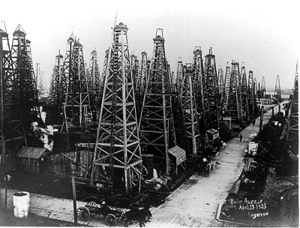 Boom towns have a culture all their own, and they are not always pretty. Boom towns like Fort McMurray, Alberta are established when a valuable resource is discovered in the vicinity of the town and the city grows rapidly with the efforts to harvest the natural resource. The term “boom town” is typically applied to mining cities that are excavating for oil or precious metals. Because of how workers flock to boom towns to make money, and because of how the towns struggle to accommodate the influx of new residents, boom towns are known to have particular surpluses and deficits, both moral and logistical.
Boom towns have a culture all their own, and they are not always pretty. Boom towns like Fort McMurray, Alberta are established when a valuable resource is discovered in the vicinity of the town and the city grows rapidly with the efforts to harvest the natural resource. The term “boom town” is typically applied to mining cities that are excavating for oil or precious metals. Because of how workers flock to boom towns to make money, and because of how the towns struggle to accommodate the influx of new residents, boom towns are known to have particular surpluses and deficits, both moral and logistical.
The things boom towns tend to have too much of are men, jobs, money and population. Because boom towns are typically built upon labor trades, it is men who seek and obtain a majority of the jobs. This leads to an imbalance in the town’s population between men and women, making it male dominated. Boom towns obviously have a surplus of jobs or they would not be boom towns. While a boom town is a boom town, its primary industry is ever expanding, creating new jobs daily. The work is highly profitable and earns its employees an impressive wage that they could not make anywhere else. As more and more people pile into town to make their fortune, the population grows to an unmanageable size.
But where boom towns have an excess of some things, they have a deficit of others. Boom towns commonly lack women, space, infrastructure and entertainment. Because it is men who flock to trade jobs, boom towns typically do not have enough women contributing to the population and turn into a heavily male dominated culture. Space for people becomes very limited as the town’s population grows at a faster rate than its infrastructure, causing overcrowding and tension. As the governing bodies struggle to provide basic services to the rapidly growing population, recreation for town residents gets put on the back burner and neglected, which consistently leads to debauchery among bored boom town residents.